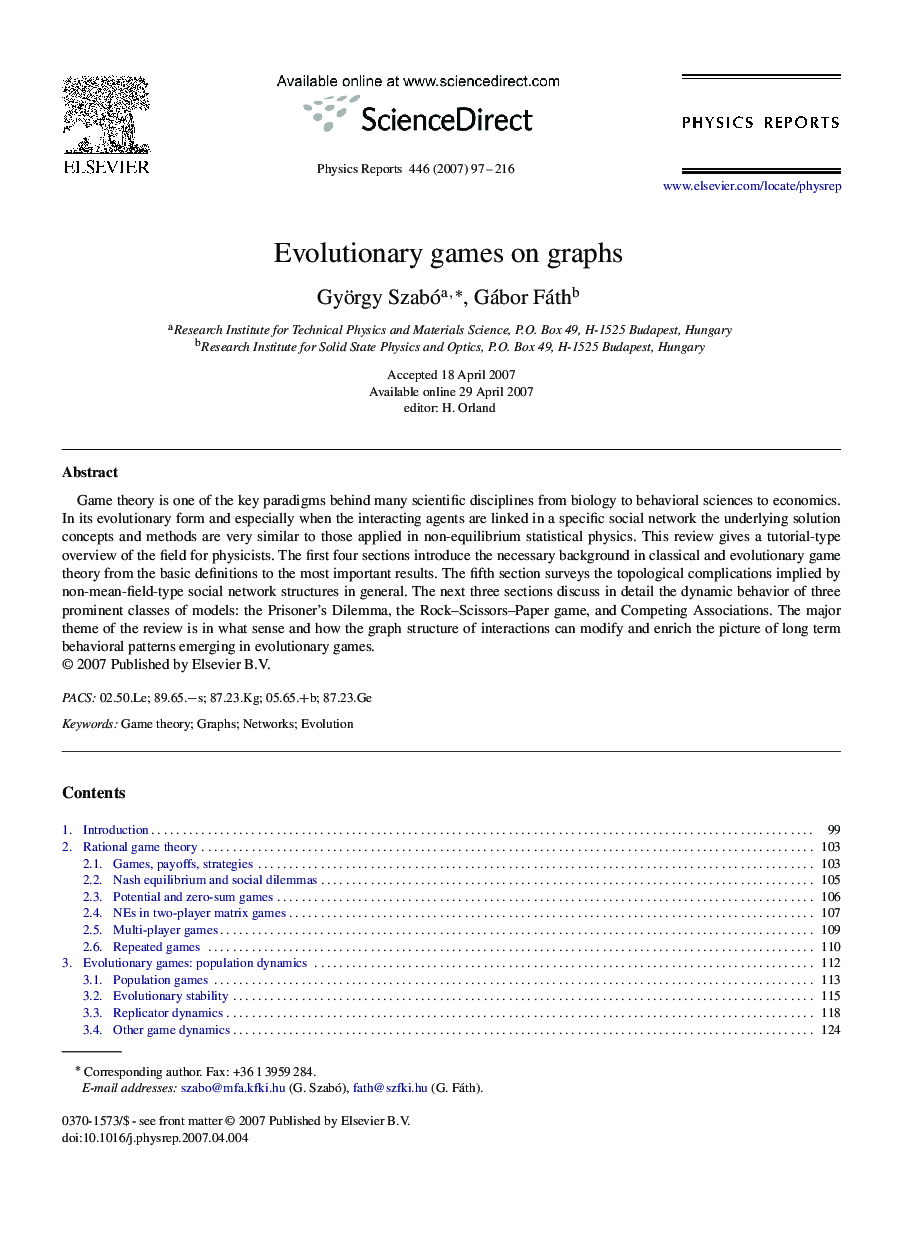| Article ID | Journal | Published Year | Pages | File Type |
|---|---|---|---|---|
| 1873963 | Physics Reports | 2007 | 120 Pages |
Abstract
Game theory is one of the key paradigms behind many scientific disciplines from biology to behavioral sciences to economics. In its evolutionary form and especially when the interacting agents are linked in a specific social network the underlying solution concepts and methods are very similar to those applied in non-equilibrium statistical physics. This review gives a tutorial-type overview of the field for physicists. The first four sections introduce the necessary background in classical and evolutionary game theory from the basic definitions to the most important results. The fifth section surveys the topological complications implied by non-mean-field-type social network structures in general. The next three sections discuss in detail the dynamic behavior of three prominent classes of models: the Prisoner's Dilemma, the Rock-Scissors-Paper game, and Competing Associations. The major theme of the review is in what sense and how the graph structure of interactions can modify and enrich the picture of long term behavioral patterns emerging in evolutionary games.
Related Topics
Physical Sciences and Engineering
Physics and Astronomy
Physics and Astronomy (General)
Authors
György Szabó, Gábor Fáth,
